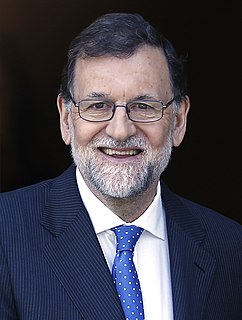A Quote by Tariq Ali
I think Syriza and Podemos are very, very different from Sinn Féin in many ways, and so I wouldn't put all three together. I would say that Syriza and Podemos are movements which have come out of mass struggles. In the case of Podemos, directly out of tariqaliextremehuge mass movements in Spain, which started with the occupation of the square. In Greece, as a response to what the EU was doing there, punishing it endlessly, for the sins of its ruling elite.
Related Quotes
At the moment we have a critical situation in Greece. Even as we speak, where there is an open attempt by the EU to destroy Syriza by splitting it. There is a German obstinacy and utter refusal to seriously consider an alternative. The reason isn't even a lack of money, because money swims around the EU coffers endlessly, and they could write off the debt tomorrow if they wanted. But they don't want to do so, because of the election of a left-wing government. They want to punish Syriza in public, to humiliate it so that this model doesn't go any further than Greece.
It followed from the special theory of relativity that mass and energy are both but different manifestations of the same thing - a somewhat unfamiliar conception for the average mind. Furthermore, the equation E = mc², in which energy is put equal to mass, multiplied by the square of the velocity of light, showed that very small amounts of mass may be converted into a very large amount of energy and vice versa.
Buddhism doesn't really have much time for political mass-movements. We are so trained to think of politics in terms of acting collectively, acting as part of mass-movements, that it's become hard for us to imagine a form of politics that is based on a high degree of introspection and self-examination.
I think that the real tragedy of Greece - aside of the savagery of European bureaucracy, Brussels bureaucracy and northern banks, which was really savage - is that the Greek crisis didn't have to erupt. It could have been taken care of pretty easily at the very beginning. But it happened and Syriza came into office with a declared commitment to combat it, and in fact as I recall they actually called a referendum, which horrified Europe.
What's more important is that we talk about movements; change happens through movements. The movement to end slavery, the movement to bring justice for those who have been left out of the system, movements to include women, movements around sexual preference - all these movements brought about change.
An EU without Britain, without 1 of Europe's strongest powers, a country which in many ways invented the single market, and which brings real heft to Europe's influence on the world stage which plays by the rules and which is a force for liberal economic reform would be a very different kind of European Union.
All movements begin and end, and all have been inspired by others that have come before them. They evolve and then deconstruct again. There are very few designers whose aesthetic I'm drawn to on a personal level. However, that's different from the ways in which I might dress the characters in my films.
Permanent mass unemployment destroys the moral foundations of the social order. The young people, who, having finished their training for work, are forced to remain idle, are the ferment out of which the most radical political movements are formed. In their ranks the soldiers of the coming revolutions are recruited.
One should be cautious about "general conceptions." I think a strong case can be made that activism today is as high as ever, perhaps more so, and is also taking new and significant forms. There has never been anything like the international solidarity movements that began to take shape in the 1980s, right in the mainstream, or the global justice movements that have become a very powerful force in later years. It's true that the society is highly atomized, which does induce a sense of hopelessness often - quite mistakenly I think.
The Second Wave Society is industrial and based on mass production, mass distribution, mass consumption, mass education, mass media, mass recreation, mass entertainment, and weapons of mass destruction. You combine those things with standardization, centralization, concentration, and synchronization, and you wind up with a style of organization we call bureaucracy.
The climate is much different for men. That stigma is only going to be broken when people come out and see that there is a positive response. That doesn't mean there will be no negative response, but if people can have the courage to be one of the first, which is very hard, those barriers can be broken down very quickly.
The emotion is the execution of a very complex program of actions. Some actions that are actually movements, like movement that you can do, change your face for example, in fear, or movements that are internal, that happen in your heart or in your gut, and movements that are actually not muscular movements, but rather, releases of molecules.





































